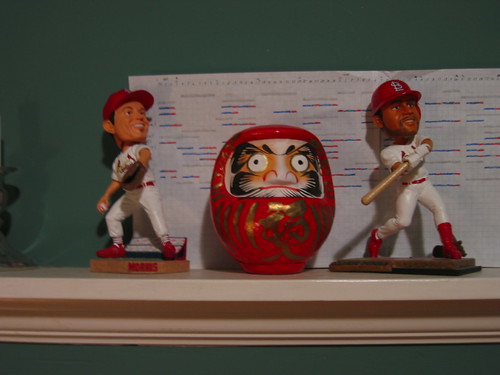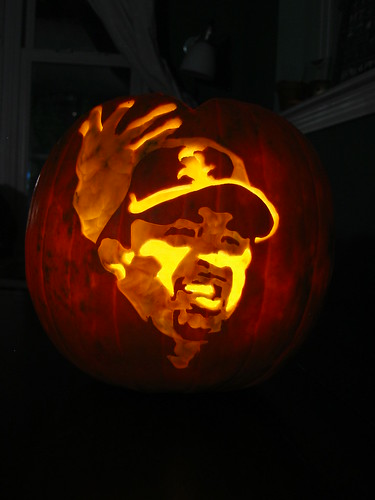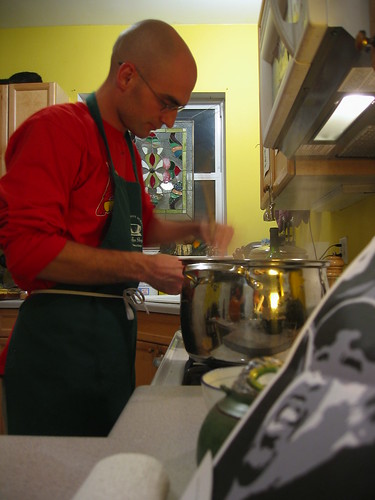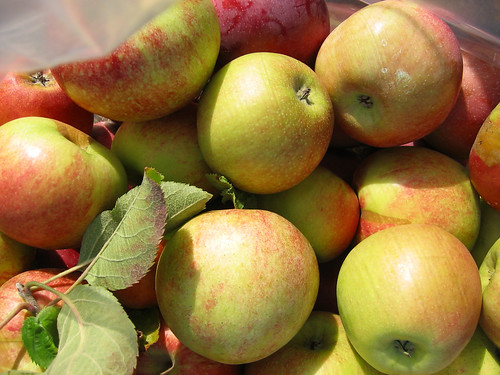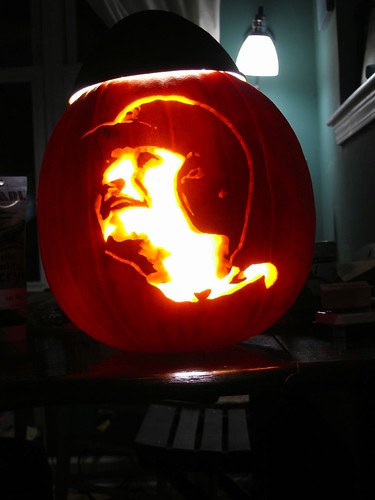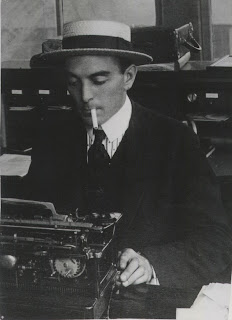Really, though, winter came on November 1, when the Royals beat the Mets to claim the championship and end the baseball season. But even October, as much as our household watches its baseball with enthusiasm, is at best a fake summer, its games wonderful for their drama but lacking the casual pleasures of the regular season. Every year, Craig Calcaterra of Hardball Talk laments the transition from the everyday grind of the regular season to the intensity of the playoffs; here he is from this year:
And with that another regular season is in the books. Another season of 8, 12, or (usually) 15-game days. Of flipping TV channels or radio stations or clicking between websites and between games. Games which, compared to the other 2,400 or so that happen during a season, mean nothing. But mean everything. Games which can be enjoyed and savored for a bit if your team won and enjoyed and easily forgotten if your team lost. The easy listening soundtrack of the past six months now fades away and in its place comes a 30-day burst of hardcore intensity.That's why I love baseball: because for six months of the year, it's always there, humming along in the background, idly occupying an inessential corner of your mind, like a friend you know well enough just to sit with in contented quiet.
That feeling is captured beautifully in Theo Schell-Lambert's baseball novel, The Heart of the Order (2015), and spending a few minutes with it today seems like a good way to say goodbye to summer and autumn. The book is the first-person account from an MLB outfielder who is rehabbing a knee injury in Florida through the heart of the season. Every day, he's got some exercises he needs to do, maybe an appointment with his doctor or physical therapist or nurse, and . . . well, that's about it. He keeps an eye on his teammates (and, worried about being Wally Pipped, pays particular attention to his replacement in the lineup), and he watches some games here and there. But mostly he's got free time. As he puts it early on:
My entire life as an employee right now is dedicated to the incremental mending of my own body, which becomes a stranger notion the more you dwell on it.And, unlike pretty much every other moment of his life to this point, he's not surrounded by teammates. Which leaves a lot of space for thinking.
That's what leads to the book we're reading. Day by day, when he has an idle thought, he puts it down, and then he follows it where it leads. Here, for example, is the opening of an early entry:
You might be wondering why ballplayers are such suckers for routines. I think it goes to the whole boredom thing. Baseball is boredom, if you want to think of it that way. Boredom cut up into shapes and sizes, summer evenings of boredom beginning at appointed hours, staged on fields of specific dimensions. Boredom reclaimed from the gods via the sale of hot dogs. Go to enough ballgames and you start to realize that the plays aren't the real game, they're just the organizing principle. The real game is the stretching for the plays.Or here he is on arriving a bit late for rehab:
So the thing you have to do, to make all those buckets of boredom make any sense at all, is use the powers of superstition. You surround the game with activities and get obsessive about them.
The PARC team didn't look thrilled when I appeared, but I couldn't tell if it was because I was late, or because I hadn't been late often enough. When you're a pro athlete, people assume you have other important things to be doing. They can't believe that the thing you're scheduled to do with them is actually all you've got on your calendar. And I've gotten used to the look you receive when you were supposed to be famous, and then you arrived at the restaurant at 7 sharp. There's always a startled little "Oh . . . " emitted by the host, who had been told to set aside a fine table, and you can see the wheels turning in his head, he 's now wondering whether to give it to someone else. It frankly embarrasses people when a celebrity arrives on time.Or his reaction to being told to take a walk:
I'm sure taking a walk seemed like a simple enough instruction to a rangy Scandinavian born with Vibram rubber on his feet, but I've been having some trouble finding my rhythm. The issue is, there are so many kinds of walks, once you start thinking about it, and I have had a hard time deciding which applies to me. . . . So it sounds like a crazy problem to have, because what's more natural than ambling, but its' like being a ballplayer at this moment in history kind of messes up your instincts. Motions that are athletic but also part of a lifestyle--when are they which? You exist in a sort of Los Angeles of the mind, in which you lose sight of how and when to use your body as a source of horsepower. Only those Manhattan athletes seem to keep it together. They stroll to the bagel shop on Saturday morning. The jog around the scenic Central Park reservoir, even if they do have a Town Car drop them off. They are New Yorkers of a certain standing whose job happens to be baseball. I seriously feel that if I were on the Mets, I wouldn't be giving this a second thought.That style of meandering thought, on baseball and other subjects, characterizes the book, all related in a voice that feels convincing, like we're watching a believable combination of an actual on-the-fly thought process and an unexpected undamming of a river of observations that has hitherto had nowhere to flow. The prose isn't as perfectly polished as that of Nicholson Baker, but the attention to and love of the quotidian calls him to mind--as if, say, Baker had written Ball Four. It's funny and companionable, and every once in a while it flashes with surprise or insight, much like everyday regular-season baseball itself. If you're missing the game right now, The Heart of the Order is a good way to get that easygoing summery feeling back, no matter what the calendar says.



